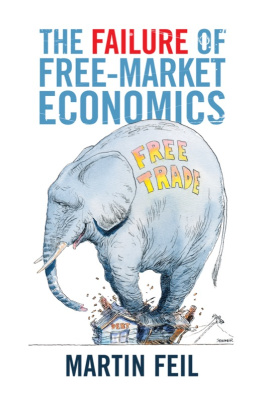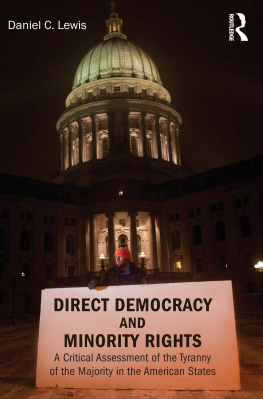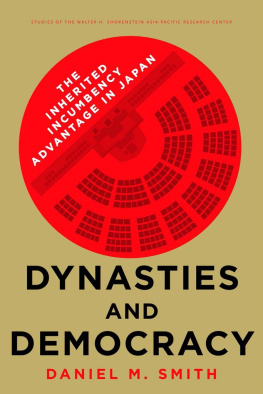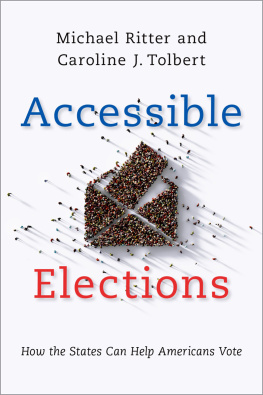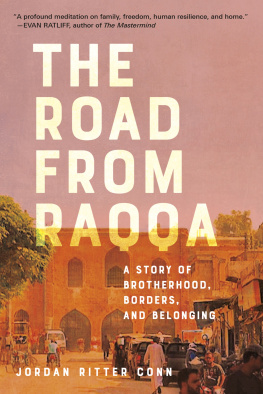Daniel Ritter - The Failure of the Free Market and Democracy
Here you can read online Daniel Ritter - The Failure of the Free Market and Democracy full text of the book (entire story) in english for free. Download pdf and epub, get meaning, cover and reviews about this ebook. year: 2020, publisher: Profile, genre: Politics. Description of the work, (preface) as well as reviews are available. Best literature library LitArk.com created for fans of good reading and offers a wide selection of genres:
Romance novel
Science fiction
Adventure
Detective
Science
History
Home and family
Prose
Art
Politics
Computer
Non-fiction
Religion
Business
Children
Humor
Choose a favorite category and find really read worthwhile books. Enjoy immersion in the world of imagination, feel the emotions of the characters or learn something new for yourself, make an fascinating discovery.

- Book:The Failure of the Free Market and Democracy
- Author:
- Publisher:Profile
- Genre:
- Year:2020
- Rating:4 / 5
- Favourites:Add to favourites
- Your mark:
- 80
- 1
- 2
- 3
- 4
- 5
The Failure of the Free Market and Democracy: summary, description and annotation
We offer to read an annotation, description, summary or preface (depends on what the author of the book "The Failure of the Free Market and Democracy" wrote himself). If you haven't found the necessary information about the book — write in the comments, we will try to find it.
The Failure of the Free Market and Democracy — read online for free the complete book (whole text) full work
Below is the text of the book, divided by pages. System saving the place of the last page read, allows you to conveniently read the book "The Failure of the Free Market and Democracy" online for free, without having to search again every time where you left off. Put a bookmark, and you can go to the page where you finished reading at any time.
Font size:
Interval:
Bookmark:
And What to Do About It
Daniel Ritter
And What to Do About It

First published in Great Britain in 2020 by Profile Editions,
an imprint of Profile Books Ltd
29 Cloth Fair
London EC1A 7JQ
www.profileeditions.com
Copyright Daniel Ritter, 2020
The author and publisher assume no responsibility for the content of websites that are not the publishers own. While care has been taken to ensure that the web links in the Notes section of this book are accurate at the time of publication, the publisher cannot guarantee that these links remain viable.
The moral right of the author has been asserted.
All rights reserved. Without limiting the rights under copyright reserved above, no part of this publication may be reproduced, stored or introduced into a retrieval system, or transmitted, in any form or by any means (electronic, mechanical, photocopying, recording or otherwise), without the prior written permission of both the copyright owner and the publisher of this book.
A CIP catalogue record for this book is available from the British Library.
ISBN 9781788164320
eISBN 9781782836506
The ideas of economists and political philosophers, both when they are right and when they are wrong, are more powerful than is commonly understood. Indeed, the world is ruled by little else. Practical men, who believe themselves to be quite exempt from any intellectual influence, are usually the slaves of some defunct economist.
John Maynard Keynes, General Theory
Western democracies are under threat economically and politically. Citizens are increasingly disaffected with politicians and institutions that have become dysfunctional and incapable of catering to their basic needs. Real income growth has petered out, public services are stretched, infrastructure is crumbling, well-paying jobs are disappearing. More broadly, the environment is being degraded while inequality is reaching record proportions way beyond most peoples sense of justice. Violence is on the rise, in the streets and in political discourse. The social contract between the state and the governed is under threat, as the lopsided and weak recovery since the Great Financial Crisis (GFC) over a decade ago feeds a pervasive sense that something is very amiss. Perhaps most corrosive of all is the realisation that todays young adults stand to be worse off than their parents unheard of in modern times. There is a gradual loss of optimism for the future. In spite of the marvels of modern technology, the signs are that Western civilisation peaked a generation ago and we are now on an inevitable decline towards its fall.
These are the symptoms of a deep malaise, and piecemeal palliative measures that do not attack the roots of the problem look increasingly like the equivalent of prescribing painkillers for a life-threatening illness. Tinkering with the tax system, hiking the minimum wage or banning plastic bags will not cut it; the forces that are corroding Western society are multiple, interconnected, and have been undermining its foundations for decades. These are the same destructive forces that triggered the GFC of 2008. They are still at work today. We need a root-and-branch diagnosis of how they came about, how they operate and how to stop and reverse them. This book aims to provide that diagnosis and to offer solutions.
Many of my themes are not new. Globalisation, rising inequality, the substitution of machines for human labour, dysfunctional politics and the rise of China have each been written and talked about elsewhere. What has been missing, however, is a coherent explanation of how all these phenomena are interlinked, mutually reinforcing, why they originated together and have led us into crisis.
The challenge to Western society posed by these issues has been aided and abetted by a minor revolution in politics and economics. The post-war consensus on how to run our societies was declared a failure, taken out to the woodshed and shot. In its place, a Darwinian, lightly regulated free-market regime has become the default, the ultimate efficient economic machine and arbiter of social outcomes, banishing politics from its workings. After the inflation of the 1970s, the academic and political pendulum swung firmly against government intervention in the economy and regulation of business practices. In came the era of President Reagan in the US and Margaret Thatcher in the UK, their free-market ideology reinforced and validated by the fall of the Berlin Wall in 1989, the demise of the Soviet Union and the opening up of China to international trade.
The principles of the free market and unfettered international trade were adopted unquestioningly as the optimum way to organise economies. In spite of major changes in society, economic principles set out by Adam Smith and David Ricardo two centuries ago have been used to guide the new dominant political, economic and academic ideology in the West. It is an ideology based on the premise that governments should confine themselves to providing a secure legal framework in which markets can operate seamlessly, and abstain from steering the economy; markets themselves produce the best outcomes in terms of the allocation of resources and the distribution of rewards, and they should be deregulated in order to operate freely.
The deregulation of markets, including that for labour, coincided with the opening-up of a massive supply of cheap labour in countries such as China and those of the former Soviet Union. This has resulted in a visible transfer of income and wealth from most Western workers to the winners in this process: workers in emerging markets and the corporate sector. Globalisation and technological change have boosted the corporations share of profits in the economy and exacerbated inequalities of income and wealth within countries. Those at the top of the corporate pyramid have reaped the benefits from international trade, the substitution of machines for human labour and lower tax rates, forgetting on the way to compensate those left behind.
This new framework also set in process a powerful debt dynamic. The finance industry was let off the leash as Western households borrowed to increase their living standards in the face of stagnant incomes. This was encouraged by aggressively expansionary banks and ever cheaper credit, courtesy of falling interest rates. Governments and central banks sat watching on the sidelines, unwilling to interfere. Not only was it politically unwise to restrain the rapidly growing mountain of debt, which after all was being created by willing participants in the market, but corporate interests, including the finance industry, began to corrupt the political system in their favour. Campaign finance contributions, lobbying, regulatory capture, or simply the generation of outsize profits that could yield much-needed tax receipts, made governments and political parties reluctant to kill the golden goose. Ironically, economics was re-joined with politics, but through the back door, undermining the very principles and workings of democracy.
According to free-market textbooks, the GFC of 2008 was, by definition, an event that should not have happened. But this was a crisis so deep that the market had to appeal for help to those very institutions that had been so derided as irrelevant: governments and central banks. Without their unprecedented and massive bail-outs of banks and large corporations, the market system would not have been able to right itself and would have collapsed.
Font size:
Interval:
Bookmark:
Similar books «The Failure of the Free Market and Democracy»
Look at similar books to The Failure of the Free Market and Democracy. We have selected literature similar in name and meaning in the hope of providing readers with more options to find new, interesting, not yet read works.
Discussion, reviews of the book The Failure of the Free Market and Democracy and just readers' own opinions. Leave your comments, write what you think about the work, its meaning or the main characters. Specify what exactly you liked and what you didn't like, and why you think so.

